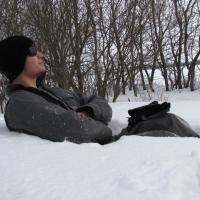Повідомлення: 98
Мова: English
sudanglo (Переглянути профіль) 9 лютого 2015 р. 14:48:12
a step on the road to somewhere elseYes, Riot. Getting Esperanto onto the school curriculum for its purely educational value not only sidesteps utilitarian arguments used against Esperanto as an international language, but of course would very quickly realise a palpable actual utility for Esperanto as an international language.
The question arises, though, whether the educational establishment would be more susceptible to the argument for Esperanto in the schools on propaedeutic grounds (a mere stepping stone to learning other languages) or for an argument based on the effect on clarity of expression in the pupil's own language, awareness of grammatical concepts, and broadening of perspective.
Would it be better to present Esperanto as the 'Latin for the less able' or as just a pedagogic device to ease into learning French, Spanish, etc.?
In any case, no other tactic used by those who support Esperanto has in 100 years been effective in producing the numbers of Esperanto speakers that are required for Esperanto to fully fulfil its purpose. So it is definitely time for a new approach.
Robb, I was once invited to give direct method lessons in Esperanto to trainee teachers of English as a foreign language to give them insight in the experience what it is like to be taught a language in that language. They were all destined to go on to teaching English in English to mixed nationality groups.
Unfortunately it never actually happened. I forget the reason why. But just a few lessons would certainly have been of fantastic value to the trainees in putting them in the shoes of their future students.
flootzavut (Переглянути профіль) 9 лютого 2015 р. 15:04:48
robbkvasnak:This is exactly how I used Esperanto for several years in my classes to teach future foreign language teachers how to instruct more effectively. Since they were all going to be teaching different languages, I used Esperanto as the model. I have handwritten notes on this and I have set it into my agenda to type them out with more detail. If anyone is interested in that, I will gladly share - I have no need to "own" them - I guess that I am just a true zamenhofian at heart.That is an excellent idea! What a great use of the language.
sudanglo: I remember when I did my CELTA course, one of our lessons was called "the learner's perspective; there was no further explanation, and when we turned up at the class, our teacher started talking to us in Greek! It was a very fun way to step into the shoes of our students. English is so often taught in an immersion situation and English speakers have so often had so little actual experience of immersion. It really is an eye opener.
(My Russian oral classes at uni were immersion/direct method right from the start, and the language lessons I had IN RUSSIA were all immersive; I was also lucky enough to have a German teacher for one school year who wasn't 100% immersion but did a lot of it. Oh, and my lit module in the last year of uni was lectured in Russian, too. However, considering I studied languages in school for 7 years and then full time for 4 more, that's really not a lot.)
kaŝperanto (Переглянути профіль) 9 лютого 2015 р. 15:35:08
robbkvasnak:This is exactly how I used Esperanto for several years in my classes to teach future foreign language teachers how to instruct more effectively. Since they were all going to be teaching different languages, I used Esperanto as the model. I have handwritten notes on this and I have set it into my agenda to type them out with more detail. If anyone is interested in that, I will gladly share - I have no need to "own" them - I guess that I am just a true zamenhofian at heart.That work sounds interesting. You could put it under a Creative Commons license or similar to give it and you some protection, but still allow others to use it freely.
evanamd (Переглянути профіль) 9 лютого 2015 р. 15:36:34
sudanglo:Here in Canada, I think the propaedeutic approach might be more effective, given the abysmal results of our core French programs. In places where there is only one official language, the latter argument might be more effective. However, I can't imagine any reason to present only one of those benefits, and not the other. It seems like a combined approach would be most effective at convincing others.
The question arises, though, whether the educational establishment would be more susceptible to the argument for Esperanto in the schools on propaedeutic grounds (a mere stepping stone to learning other languages) or for an argument based on the effect on clarity of expression in the pupil's own language, awareness of grammatical concepts, and broadening of perspective.
kaŝperanto (Переглянути профіль) 9 лютого 2015 р. 16:58:41
RiotNrrd:Actually, the more I think about it, the more I like the term "model language" to describe Esperanto rather than "artificial" or "constructed" - or even "foreign", to tell you the truth. To me, at least, the word "model" seems to lack some of the unpleasant connotations of the first two (or three, if you're a xenophobe); it somehow - again, to me, at least - seems less threatening and just generally more neutral.The model idea might just be mainstream enough to gain some traction. I've said it enough before, I know, but similar ideas are taking root in programming at the very least, with people recommending "useless" and "academic" languages like Scheme to teach general programming ideas to people who otherwise will be forced to learn basic programming on full-blown industry-oriented languages like Java. As a model language with ridiculously simple syntax and no massive standard libraries to learn, Scheme is exceptional at teaching the fundamental ideas quickly. The ideas themselves are what needs to be taught; syntactic fluff and libraries only burden the student and teacher unnecessarily (in an introductory class).
Presenting Esperanto as a model just means it's something to look at. No culture? Doesn't matter. No speakers? Doesn't matter. Isn't perfect? Doesn't matter. It's just a model, guys; a teaching aid; a step on the road to somewhere else. It isn't trying to take over the world.
Esperanto is no different. You get all the benefits of learning a foreign language without rote memorization of irregularities and without the burden of having massive cultural heritage to navigate to understand simple conversations. You're not teaching Esperanto to students; you're teaching them how to learn and use languages in general.
It is best to learn:
Scheme:(+ 1 2 3 4)instead of:
;Value: 10
#include
C:int main(int argc, char *argv[])followed with:
{
unsigned int result = 1 + 2 + 3 + 4;
printf("Value: %dn", result);
return 0;
}
C:$ gcc value.c -o valueIf I were an instructor to beginning programmers, I would much rather explain the Scheme expression (in a few sentences or less) than to have to spend a few lectures on the small subset of C syntax contained in this simple example, including: declarations, types, pointers, libraries, the syntax of printf(), the pre-processor, how to compile programs, etc.
$ ./value
Value: 10
$
Struggling to learn all the non-fundamental details is where people decide learning to program is hard, and where they decide that learning another language is hard. It may seem economic/logical to learn a marketable language first, but seeming and being are two different things.
RiotNrrd (Переглянути профіль) 10 лютого 2015 р. 02:19:25
python:print(sum((1, 2, 3, 4)))About the only real question someone might have about that is "Why so many parentheses?"
>> 10
(To (which ((I'd)
...(probably) mutter))
......((something (about)
...((just you (wait) (until))
......(you get to)) Scheme.)

kaŝperanto (Переглянути профіль) 11 лютого 2015 р. 12:46:51
RiotNrrd:For total newbies, I'd hardly start them on Scheme. Python is the Esperanto of programming.Perhaps, and then you have a "Eurocentrism" in the form of "Algol-centrism". It is nice to be able to "import SolutionToProblem" and then go on with your life.
python:print(sum((1, 2, 3, 4)))About the only real question someone might have about that is "Why so many parentheses?"
>> 10
(To (which ((I'd)
...(probably) mutter))
......((something (about)
...((just you (wait) (until))
......(you get to)) Scheme.)

I personally would make the tradeoff for *only* parenthesis vs parenthesis and everything else (including whitespace).
RiotNrrd (Переглянути профіль) 11 лютого 2015 р. 17:30:07
1: Nobody uses functional programming languages, so you'll just end up programming for yourself.
2: All those parentheses make it look ugly.
3: It has no culture. And really, is any programming language with no culture even *worth* learning?
Everybody programs Algolish, though.
kaŝperanto (Переглянути профіль) 11 лютого 2015 р. 18:16:31
RiotNrrd:The problem with Scheme islol, I see what you did there
1: Nobody uses functional programming languages, so you'll just end up programming for yourself.
2: All those parentheses make it look ugly.
3: It has no culture. And really, is any programming language with no culture even *worth* learning?
Everybody programs Algolish, though.

jdawdy (Переглянути профіль) 13 лютого 2015 р. 11:24:56
sudanglo:Following up on a link in a recent forum thread, I came across a formulation of the case against Esperanto, which I think puts it very neatly.The documentary film "The Universal Language" did nothing to dispel this, and indeed, I think it tried to present Esperanto exactly this way. The clips of a guy juggling, playing the kazoo, riding a unicycle...what on earth was the purpose of that? Of all the things the director could have shown- young people from different cultures at a youth congress, music, the literary tradition of Esperanto- instead he chose juggling and a kazoo? And the clips of people like Peter Balaz and Mark Fettes, who are erudite, eloquent speakers of Esperanto are asked about curse words and how to say "blog"? Really? A non-Esperantist who watches the film will come to two conclusions: The heyday of Esperanto was in the 1920s, and people who speak Esperanto are weird.
I quote: Very few people speak it, and most of those that do are odd people.





